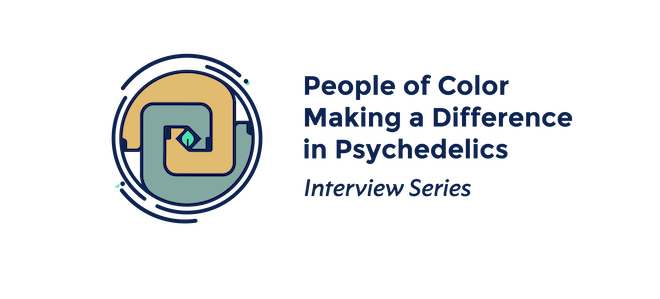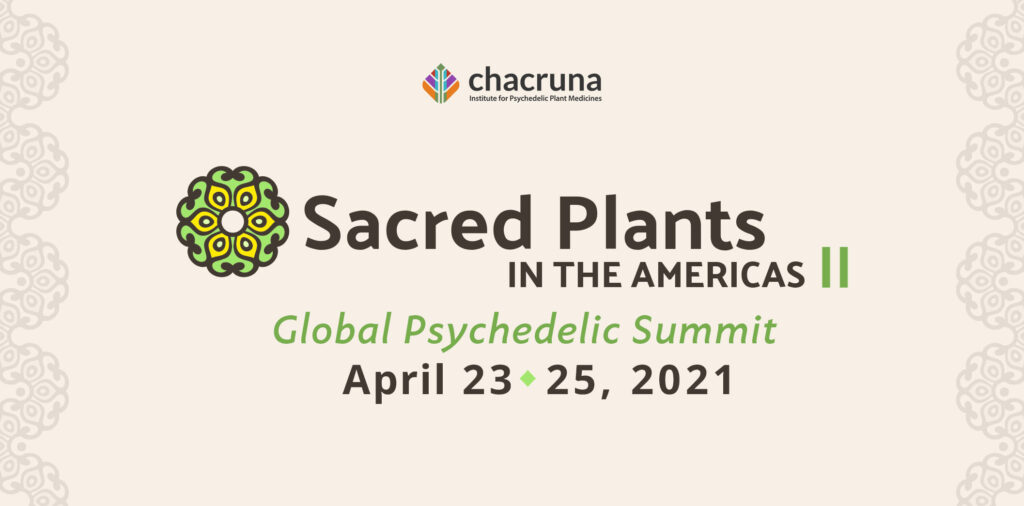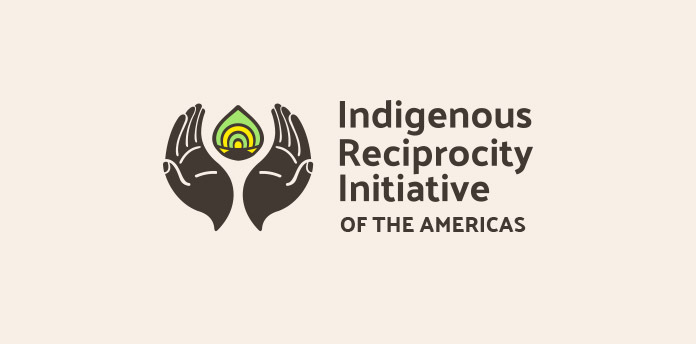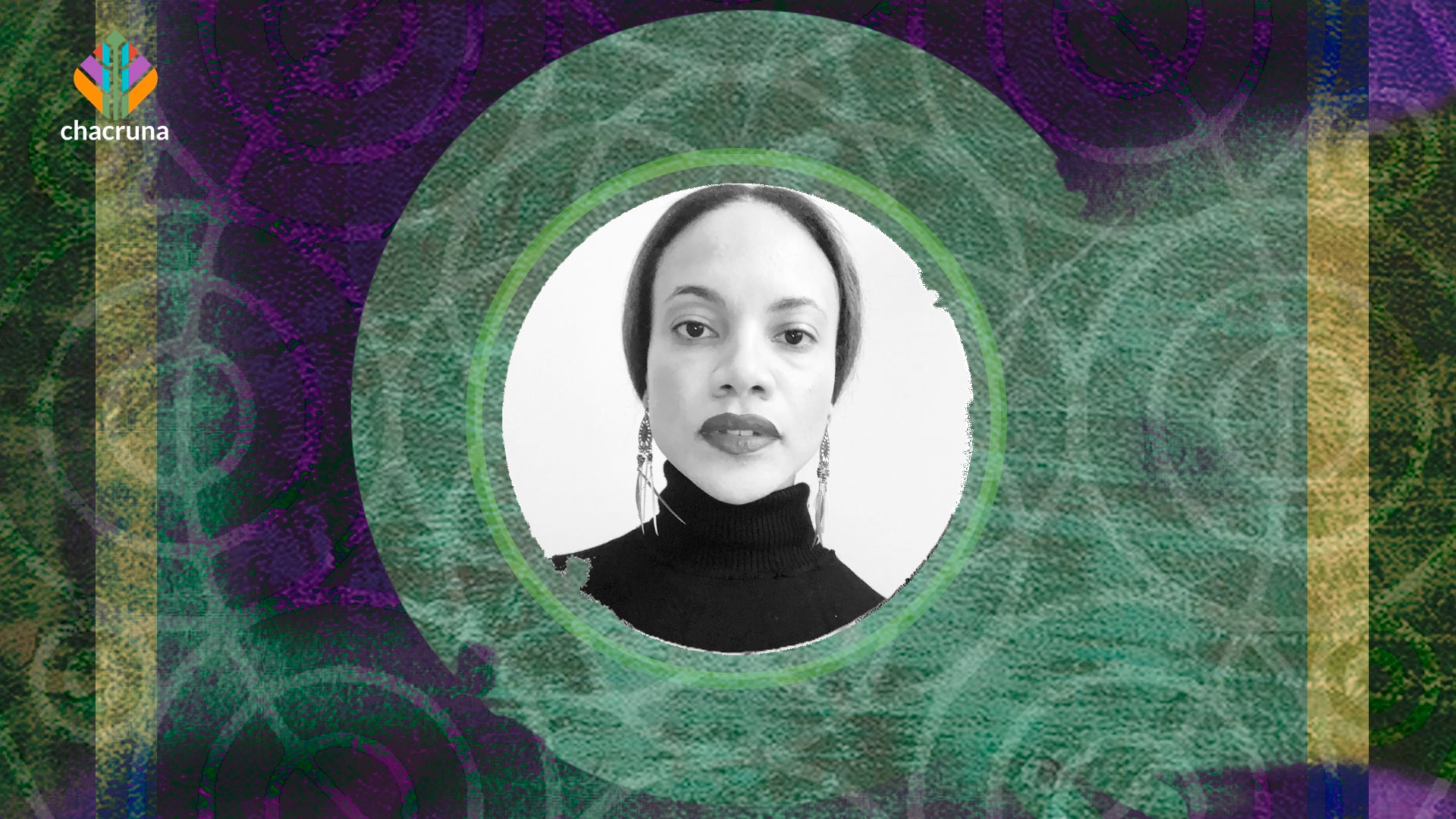- Entheogens, the African Diaspora, and BIPOC communities with Kufikiri Imara - January 20, 2021
- Innovating Native American Health Care Using Culture and Technology With Sutton King - January 11, 2021
- Navigating the Personal and Political in MDMA-assisted Psychotherapy with Sara Reed - December 29, 2020

Sara Reed is a licensed marriage & family therapist and the CEO of Mind’s iHealth Solutions, a digital health company that provides evidence-based and culturally-responsible mental health services for underserved groups. Reed was the first Black therapist to provide MDMA-assisted psychotherapy in a clinical trial and engages in ongoing advocacy work around health equity in psychedelic medicine.
Originally from Kentucky, Reed is intent on making psychedelic treatments accessible to those in need, including those in rural, underserved areas, like her home state of Kentucky in the United States. She provides individual therapy and supervises and trains clinicians in providing culturally-responsible mental health treatment. Reed’s prior research work includes participating as a study therapist on the psilocybin-assisted therapy research study for major depression at Yale University. Before joining the research team at Yale, Reed was a sub-investigator and study coordinator for the Multidisciplinary Association for Psychedelic Studies (MAPS) Phase 2 MDMA clinical study of posttraumatic stress disorder (PTSD). Sara is also an advisor for Journey Colab.
In this interview, Sara discusses MDMA as a promising treatment for racial trauma, navigating the personal and political realities that can emerge in dosing sessions, and the importance of providing equitable access to psychedelic-assisted therapies.
In this interview, Sara discusses MDMA as a promising treatment for racial trauma, navigating the personal and political realities that can emerge in dosing sessions, and the importance of providing equitable access to psychedelic-assisted therapies.
Sign up to our Newsletter:
MM: You said that psychedelic medicine was a field that chose you. What do you mean by that?
SR: I truly believe Spirit led me to this work. When I think about all the events that had to happen for me to be here, I couldn’t have planned this on my own. The journey has been a miracle, and an unexpected one for me. I believe more people will continue to be called into this spirit-based work, just like me.
My introduction to psychedelic medicine was through a graduate course in a marriage and family therapy program at Valdosta State University. In our alternative therapies course, we discussed Gabor Maté’s work on ayahuasca as a treatment for addiction. I was fascinated by his embodied and human-centered approach. Looking for psychotherapy jobs in the South, post-graduation, I wanted to continue research work with Black Americans. I googled “African-American research in Kentucky,” and Dr. Monnica Williams’ name popped up. I cold-emailed her and she ended up offering me a job! Little did I know it would change the trajectory of my life.
About three months into the position, Dr. Williams approached me about a training that MAPS was doing on using MDMA as an adjunct medication for treatment of PTSD. “Would you be interested?” She asked. I said, “Uh, yes, I would!” (laughs.) Long story short, that was the beginning of my work in this field.
Looking for psychotherapy jobs in the South, post-graduation, I wanted to continue research work with Black Americans. I googled “African-American research in Kentucky,” and Dr. Monnica Williams’ name popped up.

Join us at Sacred Plants in the Americas II
MM: Why did you want to conduct your research in Kentucky?
SR: I grew up in Hopkinsville, Kentucky in the 90s. It has one of the largest populations of Black folks in the state (bell hooks was born there), an Amish community, and a community of Native Americans. I live less than a mile away from the Trail of Tears Commemorative Park and Heritage Center. It’s one of the few documented sites used during the forced removal of the Cherokee people. This park is the burial site of two Cherokee chiefs who died: Fly Smith and Whitepath. I am still learning and discovering more about my lineage and the land of my ancestors.
Kentucky is highly under-resourced. Not a lot of people are investing in the state or in rural areas. I’ve always wanted to invest back into the state, and in a community that gave me so much. Just to say, I graduated from one of the worst high schools in the state, at the time, to working with some of the best researchers in this field. I am humbled by this. I also felt a calling to come home this year with the senseless murder of Breonna Taylor, the pandemic, and the limited mental health resources this state.
MM: In listening to your talks and reading your articles, you draw a distinction between your political and personal reality. What does this mean to you, and how did you arrive at this distinction?
SR: As a Black woman in the United States, I have been forced to learn the difference between my personal versus my political reality. It’s an awareness that has been necessary for my survival. There has always been a part of me that has known that I am beyond my gender, race, and geography; that I am a spiritual being having a human experience, so-to-speak. My political reality, however, tells me something different. It tells me that my race, gender, income, skin color, education, ability, etcetera, have a direct impact on the way people treat me and who I understand myself to be. Of course, there are so many incredible Black artists who’ve written about this. W. E. B. Dubois talked about the double consciousness that Black people have. Toni Morrison spoke about the white gaze. I have been forced to learn the rules of a white world in order to gain access to the spaces that I am in.
As a Black woman in the United States, I have been forced to learn the difference between my personal versus my political reality. It’s an awareness that has been necessary for my survival.
When I took MDMA in a one-time clinical setting as part of the MAPS therapists training, I transcended these political realities, my body, and everything that I knew. I went to a place where I met my grandmother who had passed some years prior. She took me to a place that I’d always known existed, but I hadn’t seen in this way. I call it home. It was where I felt like I belonged for the first time as an adult. I felt free, too, for the first time, as a young, Black woman. I had to confront another truth, however; I carried painful stories in my body. Little did I know that learning to be in my body—with the freedom and pain—was my process. I had to really be with myself in a new way—in particular, acknowledging the pain—by crying for myself and my ancestors. I hadn’t taken the time to grieve. Three years later, I am still grieving.
When I took MDMA in a one-time clinical setting as part of the MAPS therapists training, I transcended these political realities, my body, and everything that I knew. I went to a place where I met my grandmother who had passed some years prior.
Integration is a process that is constantly unfolding. Integration from racial wounds, though, is a bit different because racism hasn’t stopped. The exposure to trauma is quite high right now for Black and Indigenous people and healthcare workers. Being back at home, I’m reminded of the power of community and the importance of being in community. To exchange stories and be seen and understood in a community can be healing in itself, especially for racial trauma. You don’t feel so alone.
Being back at home, I’m reminded of the power of community and the importance of being in community. To exchange stories and be seen and understood in a community can be healing in itself, especially for racial trauma. You don’t feel so alone.
MM: You said that the therapeutic effect of MDMA was, in part, the physiological action of the drug and the mindset between therapist and participant. Along that vein, let’s talk about the importance of having culturally-sensitive care. What would you like to see?
SR: I would like to see Spirit being acknowledged and respected as an integral part of medicine work. I’d also like to see cultural sensitivity become a central part of training in psychedelic-assisted therapies. This means including culturally responsible practices in the design and implementation in the research, such as training researchers to ask questions like, “How does culture influence the way symptoms present in a variety of participants?” “How does this knowledge inform recruitment strategies?” “How do my individual sociocultural identity and my blind spots impact this work?” To me, these are part of the basics of good clinical care.
We need to create a community of providers that serves marginalized communities. We need to empower them; which means, provide them with the education, training, and resources necessary to set up clinics. We have to be more intentional about how we approach them and acknowledge that we are still researching how to do medicine work in a clinical setting with folks of color. I am so grateful that my MAPS clinical supervisor acknowledged this piece when I was receiving supervision as a therapist in the MDMA therapy clinical trials. That’s the kind of humility we need to move forward.
MM: As a therapist who’s worked with MDMA, can you speak about what makes it so effective as opposed to conventional talk therapy?
SR: It’s the intention that goes into the MDMA treatment that creates space for exploration and invites Spirit to participate in the transformation, or even in the magic, of the healing process. For our site at UConn Health Center, we began the process through relationship building, with the community we were trying to serve, the institution we were working in, too. All of these parts influence the container that gets set for participants in their experience. It’s a space that respects every step of the process from the “recruitment” to the screening to the end of treatment. On one hand, therapists help to guide participants through the experience, but they are also witnessing the intelligence and power of the participant to heal themselves. This treatment forces therapists to meet participants where they are; a saying that’s often present in the field of psychotherapy but not often demonstrated in practice.
The power and potential of MDMA-assisted psychotherapy is generated in the synergy that occurs between the therapist, participant, and MDMA. Whether we want to acknowledge it or not, the personal backgrounds of therapists have a direct impact on the container that gets set in these experiences, too. It’s interesting that Western medicine has the implicit belief that we can separate the personal from the professional. This is why it’s so important for us to continue having conversations about providing culturally responsible care in the field. If not, our implicit biases can show up and harm folks, unintentionally.
The power and potential of MDMA-assisted psychotherapy is generated in the synergy that occurs between the therapist, participant, and MDMA. Whether we want to acknowledge it or not, the personal backgrounds of therapists have a direct impact on the container that gets set in these experiences, too.

Discover Indigenous Reciprocity Iniciative of the Americas
MM: You wrote about the dangers of white feminism in the psychedelic community. Will you extrapolate on that?
SR: Sure. During a panel discussion at the Women in Psychedelics forum a couple of years ago that I was on, someone from the audience asked about white women’s role in white supremacy. I was excited about this question, especially considering this panel had some ethnic and racial diversity. A white woman responded by sharing a story where she used the n-word twice. Not once, but twice.
During a panel discussion at the Women in Psychedelics forum a couple of years ago that I was on, someone from the audience asked about white women’s role in white supremacy.
I was sitting on stage with white women who talked radically about social justice, but no one there called out this white woman for saying the n-word. This is white feminism: the blatant ignoring of issues that don’t affect white women, and the expectation of Black women to do the labor. I didn’t know what to do. I kept running through scenarios in my head of how to address it. How do I publicly address a white woman for saying the n-word. What?I’d never been in this situation before in my life, let alone in psychedelic medicine. I didn’t address the situation because, frankly, I didn’t know how to. Ignorance is bliss, right? Ignorance is a luxury that a lot of white women can afford. There are different consequences for my ignorance as a Black woman.
How do I publicly address a white woman for saying the n-word. What?I’d never been in this situation before in my life, let alone in psychedelic medicine. I didn’t address the situation because, frankly, I didn’t know how to.
It’s so important that we contextualize these conversations, because we all have different points of access to power and privilege. If you take a look at the psychedelic medicine field now, the images and voices that are hyper-visible are predominately white men. When you see folks of color in the space, there is still an overwhelming majority of light-skinned or white-passing people. I am an educated light-skinned Black woman, for example. No doubt, that this has provided me more access to opportunities, even within this field. We’ve got some work to do in order to implement a decolonized approach to treatment with these medicines and to make them accessible. I hope that the psychedelic field realizes that making sure these treatments are culturally responsible will be in the best interest of everyone. If not, we run the risk of widening the gap of health disparities among those who need care and, more critically, potentially harming people in the process.
I hope that the psychedelic field realizes that making sure these treatments are culturally responsible will be in the best interest of everyone. If not, we run the risk of widening the gap of health disparities among those who need care and, more critically, potentially harming people in the process.
Take a minute to browse our stock:
Did you enjoy reading this article?
Please support Chacruna's work by donating to us. We are an independent organization and we offer free education and advocacy for psychedelic plant medicines. We are a team of dedicated volunteers!
Can you help Chacruna advance cultural understanding around these substances?









